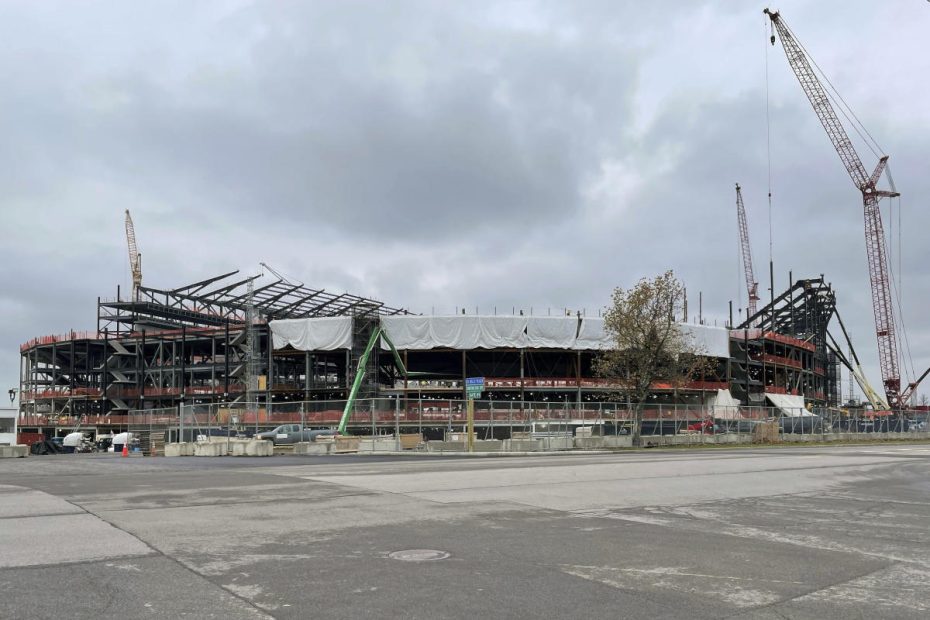ORCHARD PARK, N.Y. (AP) — The projected cost of the Buffalo Bills' new stadium has risen to what team officials told The Associated Press on Friday “north of $2.1 billion,” with owners Terry and Kim Pegula responsible for collecting the more than $560 million in overages.
Bills president Pete Guelli said he wasn't surprised by the amount, given the rising numbers since construction began 16 months ago. And he said the projected total represents the commitment the Pegulas have to the community as they stick to their vision for the facility without skimping on cost savings.
“In short, the Pegulas will not deviate from building a best-in-class stadium in Buffalo,” Guelli said.
“It will be an exceptional fan experience and an incredible place to play. “I think we are very proud to be able to build a facility like this in Buffalo and make it available to our fans,” he added. “We want this project to be a success for the team, both on and off the pitch, and it will be.”
Guelli said the higher costs will not impact the timeline for completion. The stadium will be built across the street from the Bills' current home and is expected to open in June 2026.
Taxpayers are putting a combined $850 million into the project: $600 million from the state and $250 million from the county. When the deal was signed two years ago, this represented more than half of the construction costs, but now taxpayers will be responsible for about 40%. The bills are responsible for any overages of more than $1.54 billion.
“I'm very happy to know that when all is said and done – and it's still not done, so it could go up even further – that the province probably won't have contributed more than 12% of the total cost. That’s a pretty good deal,” Erie County Executive Mark Poloncarz told The AP.
The Pegulas must now pay $1.25 billion in construction costs, plus an additional $144 million as part of a community benefits package to be spread over the 30-year lease.
The Bills are financing their share through an NFL loan program and raising money through a first-seat licensing fee for season ticket holders. Preliminary plans are also in the works for the construction of an entertainment zone with restaurants, bars and shops, which will be built once the existing stadium is demolished.
Pegula is also raising money by trying to sell a minority stake – no more than 25% – of the franchise, although Guelli said the reasons behind the move are not related to higher construction costs. The bills met with several interested groups over the summer and September, with Pegula expected to find a new partner by the end of the year.

